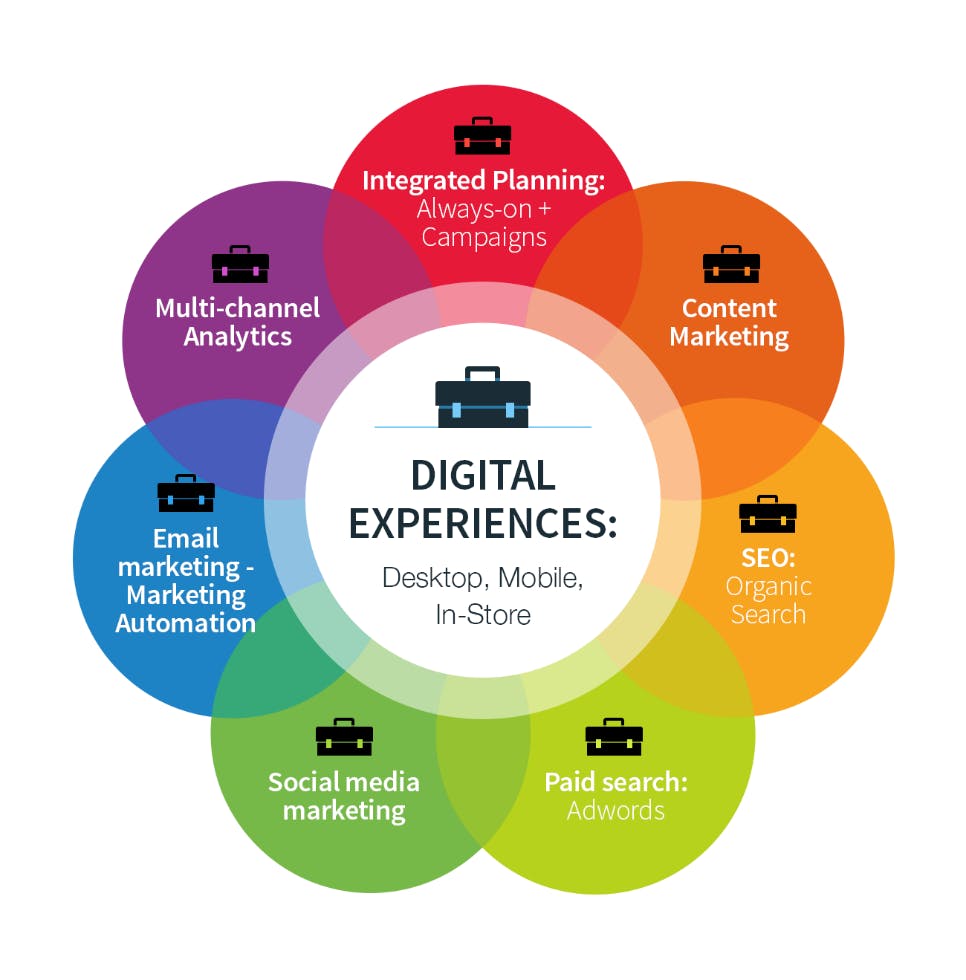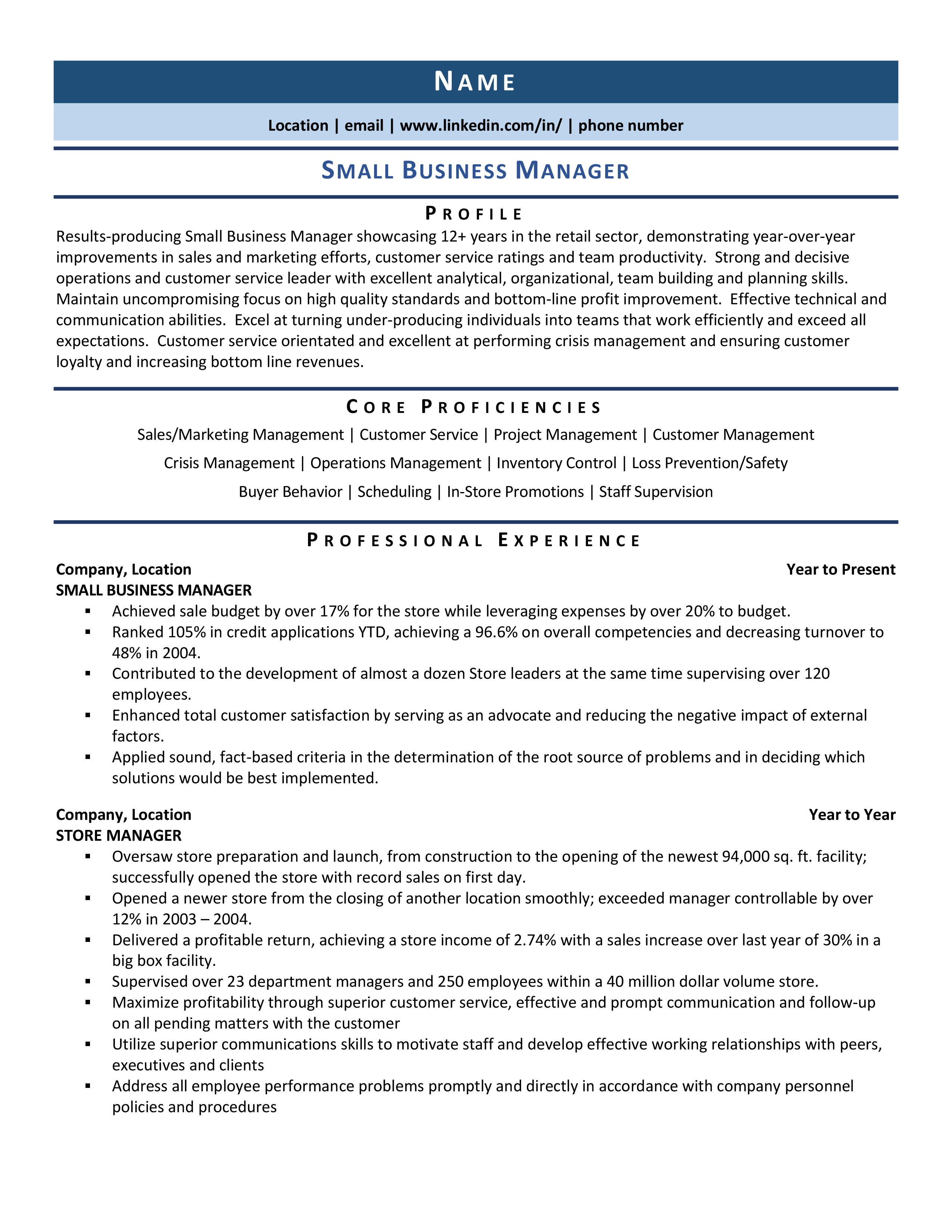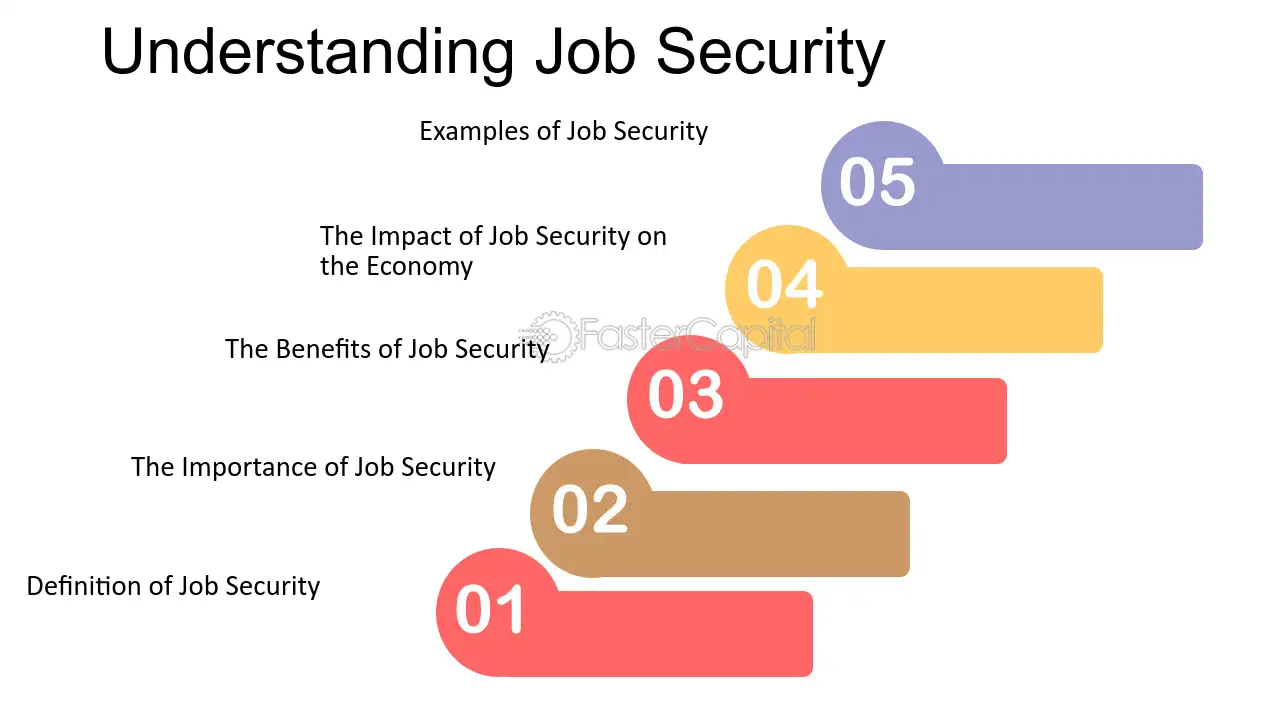-
Is Job Security Typically a Concern with Startup Marketing Jobs?
- 1. What Factors Influence Job Security in Startup Marketing Roles?
- 2. How Does the Nature of Startups Affect Marketing Job Stability?
- 3. Are Marketing Roles in Startups More Prone to Layoffs?
- 4. What Can Marketing Professionals Do to Enhance Job Security in Startups?
- 5. How Does Job Security in Startup Marketing Compare to Corporate Roles?
- Which sector has the highest job security?
-
Is there job security in digital marketing?
- Is Digital Marketing a Stable Career Choice?
- How Does the Growth of E-Commerce Impact Job Security in Digital Marketing?
- What Skills Are Essential for Job Security in Digital Marketing?
- How Does Automation Affect Job Security in Digital Marketing?
- What Industries Offer the Most Job Security in Digital Marketing?
- Is it normal to worry about job security?
- Does working for a startup look good on a resume?
- Frequently Asked Questions from Our Community
Job security is a common concern for professionals considering roles in startup marketing. Unlike established companies, startups often operate in volatile environments, where funding, market conditions, and business strategies can shift rapidly. This uncertainty can make marketing roles in startups particularly challenging, as budgets and priorities may change unexpectedly. However, working in a startup also offers unique opportunities for growth, creativity, and impact. Marketers in these environments often wear multiple hats, gaining diverse experience that can be invaluable for their careers. While job security may not be guaranteed, the potential for personal and professional development can make startup marketing roles an attractive option for many.
Is Job Security Typically a Concern with Startup Marketing Jobs?
Startup marketing jobs often come with unique challenges and opportunities, and one of the most common concerns for professionals considering such roles is job security. Unlike established companies, startups operate in a high-risk, high-reward environment, which can directly impact the stability of marketing positions. Below, we explore this topic in detail, addressing key aspects that influence job security in startup marketing roles.
See Also Is It the Job Market in General or Marketing Specifically?
Is It the Job Market in General or Marketing Specifically?1. What Factors Influence Job Security in Startup Marketing Roles?
Job security in startup marketing roles is influenced by several factors, including the financial health of the startup, its growth trajectory, and the demand for marketing expertise. Startups often rely on funding rounds, and if funding dries up, marketing teams may face layoffs. Additionally, the company's ability to scale and generate revenue plays a significant role in determining the stability of marketing positions.
2. How Does the Nature of Startups Affect Marketing Job Stability?
The volatile nature of startups inherently affects job stability. Startups are often in the early stages of development, meaning they may pivot their business model, change strategies, or even fail altogether. Marketing teams are particularly vulnerable during these shifts, as their roles are closely tied to the company's evolving goals and market positioning.
See Also Looking for a career coach? Any recommendations?
Looking for a career coach? Any recommendations?3. Are Marketing Roles in Startups More Prone to Layoffs?
Marketing roles in startups can be more prone to layoffs compared to other departments. This is because marketing is often seen as a cost center rather than a revenue generator, especially in the early stages. When budgets tighten, marketing teams may be the first to face cuts, making job security a significant concern.
4. What Can Marketing Professionals Do to Enhance Job Security in Startups?
Marketing professionals can take proactive steps to enhance their job security in startups. These include demonstrating measurable impact through data-driven results, aligning with the company's core objectives, and developing versatile skills that make them indispensable. Building strong relationships with leadership and staying adaptable can also help mitigate risks.
See Also Brand Designers, how do you measure success?
Brand Designers, how do you measure success?5. How Does Job Security in Startup Marketing Compare to Corporate Roles?
Job security in startup marketing roles is generally lower compared to corporate roles. Established companies often have more stable revenue streams and structured teams, providing greater job stability. However, startup roles offer unique opportunities for growth, creativity, and impact, which can outweigh the risks for some professionals.
| Factor | Impact on Job Security |
|---|---|
| Financial Health | Startups with limited funding may prioritize layoffs in non-revenue-generating roles like marketing. |
| Growth Trajectory | Rapidly growing startups may offer more stability, while stagnant ones pose higher risks. |
| Role Versatility | Professionals with diverse skills are less likely to be laid off during restructuring. |
| Company Pivots | Frequent changes in business strategy can lead to role redundancies in marketing teams. |
| Market Demand | High demand for marketing expertise in the industry can improve job security. |
Which sector has the highest job security?

Healthcare Sector: A Pillar of Job Security
The healthcare sector is widely regarded as one of the most secure industries for employment. This is due to the constant demand for medical services, regardless of economic conditions. Key factors contributing to its stability include:
- Aging populations increasing the need for medical care.
- Technological advancements creating new roles in healthcare.
- Essential nature of healthcare services, making it recession-resistant.
Education Sector: Stability Through Continuous Learning
The education sector offers high job security due to the perpetual need for learning and skill development. Reasons for its stability include:
- Government funding for public education systems.
- Growing emphasis on lifelong learning and professional development.
- Demand for educators across all levels, from primary to higher education.
Information Technology: Thriving in the Digital Age
The IT sector is another area with high job security, driven by the digital transformation of industries. Key factors include:
- Increasing reliance on technology across all sectors.
- Cybersecurity needs growing as digital threats evolve.
- Innovation creating new job roles in AI, cloud computing, and data analysis.
Government Jobs: Stability Through Public Service
Government jobs are known for their stability and security, often offering long-term career paths. Contributing factors include:
- Steady funding from taxes and public budgets.
- Union protections ensuring job security for employees.
- Essential services like law enforcement, infrastructure, and administration.
Utilities Sector: Essential Services with High Demand
The utilities sector, including water, electricity, and gas, provides high job security due to its critical role in society. Reasons for its stability include:
- Constant demand for essential utilities regardless of economic conditions.
- Regulated industries ensuring steady operations and employment.
- Infrastructure maintenance requiring skilled workers for long-term projects.
Is there job security in digital marketing?

Is Digital Marketing a Stable Career Choice?
Digital marketing is considered a stable career choice due to the increasing reliance of businesses on online platforms. The demand for skilled professionals in this field continues to grow as companies seek to enhance their online presence. Here are some reasons why digital marketing offers job security:
- High Demand: Businesses across industries require digital marketing expertise to reach their target audiences.
- Diverse Opportunities: Roles such as SEO specialists, content marketers, and social media managers are in constant demand.
- Adaptability: Digital marketing evolves with technology, ensuring long-term relevance.
How Does the Growth of E-Commerce Impact Job Security in Digital Marketing?
The rapid growth of e-commerce has significantly boosted the need for digital marketing professionals. As more businesses shift to online sales, the demand for experts who can drive traffic and conversions increases. Key points include:
- Increased Online Sales: E-commerce platforms rely heavily on digital marketing strategies to attract customers.
- Global Reach: Digital marketing enables businesses to target international audiences, creating more job opportunities.
- Specialized Roles: Positions like e-commerce marketers and PPC specialists are becoming more prevalent.
What Skills Are Essential for Job Security in Digital Marketing?
To ensure job security in digital marketing, professionals must continuously update their skills to stay competitive. Essential skills include:
- Data Analysis: Understanding analytics tools like Google Analytics is crucial for measuring campaign success.
- Content Creation: Strong writing and design skills are necessary for creating engaging content.
- Technical Proficiency: Familiarity with SEO, SEM, and social media algorithms is vital.
How Does Automation Affect Job Security in Digital Marketing?
Automation tools are transforming digital marketing, but they do not eliminate the need for human expertise. Instead, they enhance efficiency and create new opportunities. Key aspects include:
- Efficiency: Automation streamlines repetitive tasks, allowing marketers to focus on strategy.
- New Roles: Professionals are needed to manage and optimize automated systems.
- Skill Enhancement: Marketers must learn to work alongside AI and automation tools.
What Industries Offer the Most Job Security in Digital Marketing?
Certain industries consistently demand digital marketing expertise, providing greater job security. These include:
- Technology: Tech companies heavily invest in digital marketing to promote their products and services.
- Retail: Both online and brick-and-mortar retailers rely on digital marketing to drive sales.
- Healthcare: The healthcare industry uses digital marketing to reach patients and promote services.
Is it normal to worry about job security?

Why Do People Worry About Job Security?
Worrying about job security is a common concern for many individuals, especially in uncertain economic times or industries prone to rapid changes. This anxiety often stems from factors such as:
- Economic instability: Recessions or market downturns can lead to layoffs or hiring freezes.
- Technological advancements: Automation and AI may replace certain roles, creating fear of obsolescence.
- Company performance: Poor financial results or restructuring can threaten job stability.
How Does Job Insecurity Affect Mental Health?
Job insecurity can have a significant impact on mental health, leading to stress, anxiety, and even depression. Key effects include:
- Chronic stress: Constant worry about losing a job can lead to long-term stress.
- Reduced productivity: Anxiety may hinder focus and performance at work.
- Strained relationships: Personal relationships can suffer due to emotional strain.
What Are Common Signs of Job Insecurity?
Recognizing the signs of job insecurity can help individuals address the issue proactively. Common indicators include:
- Frequent layoffs: Observing colleagues being let go can heighten fears.
- Lack of communication: Poor transparency from management about the company's future.
- Increased workload: Being assigned more tasks without clear reasons or rewards.
How Can Employers Address Job Security Concerns?
Employers play a crucial role in alleviating job security worries among employees. Effective strategies include:
- Open communication: Regularly updating staff about company performance and plans.
- Skill development: Offering training programs to help employees adapt to changes.
- Job stability initiatives: Implementing policies that prioritize employee retention.
What Can Employees Do to Feel More Secure in Their Jobs?
Employees can take proactive steps to enhance their job security and reduce anxiety. Recommended actions include:
- Upskilling: Continuously learning new skills to stay relevant in the job market.
- Networking: Building professional connections to explore alternative opportunities.
- Financial planning: Saving and budgeting to prepare for potential job loss.
Does working for a startup look good on a resume?

Why Does Working for a Startup Stand Out on a Resume?
Working for a startup can significantly enhance your resume due to the unique experiences and skills gained in such environments. Startups often require employees to wear multiple hats, which means you likely developed a diverse skill set and demonstrated adaptability. Employers value candidates who can thrive in dynamic and fast-paced settings, as it shows resilience and problem-solving abilities. Additionally, startups often operate with limited resources, which can highlight your ability to work efficiently and creatively.
- Exposure to diverse roles: Startups often require employees to take on responsibilities outside their primary job description.
- Demonstrated adaptability: Working in a startup environment shows you can handle uncertainty and rapid changes.
- Problem-solving skills: Startups often face unique challenges, requiring innovative solutions.
How Does Startup Experience Showcase Leadership Potential?
Startup roles frequently provide opportunities to take on leadership responsibilities, even if you're not in a formal management position. This can include leading projects, mentoring team members, or making critical decisions. Such experiences demonstrate your ability to take initiative and manage responsibilities effectively, which is highly attractive to future employers.
- Project leadership: Startups often assign employees to lead initiatives, showcasing your ability to manage tasks and teams.
- Decision-making: Being part of a startup often involves contributing to key business decisions.
- Mentorship opportunities: You may guide newer team members, highlighting your leadership and communication skills.
What Skills Do You Gain from Working at a Startup?
Working at a startup allows you to develop a wide range of transferable skills that are highly valued across industries. These include technical expertise, business acumen, and interpersonal skills. The hands-on nature of startup work ensures you gain practical experience that can set you apart from other candidates.
- Technical skills: Startups often use cutting-edge tools and technologies, giving you a competitive edge.
- Business acumen: You gain insight into how businesses operate, including marketing, finance, and operations.
- Interpersonal skills: Collaborating in small teams enhances your communication and teamwork abilities.
Does Startup Experience Highlight Entrepreneurial Spirit?
Working for a startup demonstrates an entrepreneurial mindset, which is highly appealing to employers. It shows you are willing to take risks, think creatively, and contribute to building something from the ground up. This can be particularly valuable if you're applying for roles in innovation-driven companies or startups.
- Risk-taking: Startups are inherently risky, and your experience shows you can navigate uncertainty.
- Innovation: You likely contributed to developing new ideas or processes, showcasing your creativity.
- Ownership mentality: Startups encourage employees to take ownership of their work, reflecting a proactive attitude.
How Does Startup Experience Compare to Corporate Experience on a Resume?
Startup experience often contrasts with corporate roles by emphasizing versatility and initiative. While corporate roles may provide depth in a specific area, startup experience highlights your ability to work across functions and adapt to changing circumstances. This can make you a more well-rounded candidate.
- Versatility: Startups require employees to handle multiple responsibilities, unlike specialized corporate roles.
- Initiative: You likely took on tasks beyond your job description, showing a proactive approach.
- Adaptability: Startup environments are less structured, requiring you to adjust quickly to new challenges.
Frequently Asked Questions from Our Community
Is job security typically a concern with startup marketing jobs?
Job security can indeed be a concern when working in startup marketing jobs. Startups are often in their early stages and may face financial instability, rapid changes in strategy, or even failure. This uncertainty can lead to job insecurity, as startups may need to downsize or pivot quickly, potentially affecting marketing roles. However, working in a startup can also offer unique opportunities for growth, skill development, and the chance to make a significant impact, which some professionals find outweighs the risks.
How does job security in startup marketing compare to corporate marketing roles?
Compared to corporate marketing roles, startup marketing jobs generally offer less job security. Corporations typically have more stable funding, established processes, and a larger customer base, which can provide a sense of stability. In contrast, startups operate in a high-risk, high-reward environment where roles and responsibilities can change frequently. While corporate jobs may offer more predictability, startup roles often provide greater flexibility, creativity, and the potential for rapid career advancement.
What factors influence job security in startup marketing positions?
Several factors influence job security in startup marketing positions. These include the startup's funding status, its stage of growth, market conditions, and the overall business strategy. For example, a well-funded startup with a clear growth plan may offer more stability than one struggling to secure investment. Additionally, the role's alignment with the company's core objectives and the individual's ability to adapt to changing priorities can also impact job security. Professionals in these roles should stay informed about the company's health and be prepared to pivot if necessary.
Can job security in startup marketing improve over time?
Job security in startup marketing can improve as the company matures and achieves milestones such as securing additional funding, reaching profitability, or expanding its customer base. As startups transition from early-stage to growth-stage or beyond, they often stabilize their operations and workforce. However, this improvement is not guaranteed and depends on the startup's ability to navigate challenges and sustain growth. Employees who contribute significantly to the company's success may also find their roles becoming more secure over time.
Leave a Reply


Articles of interest